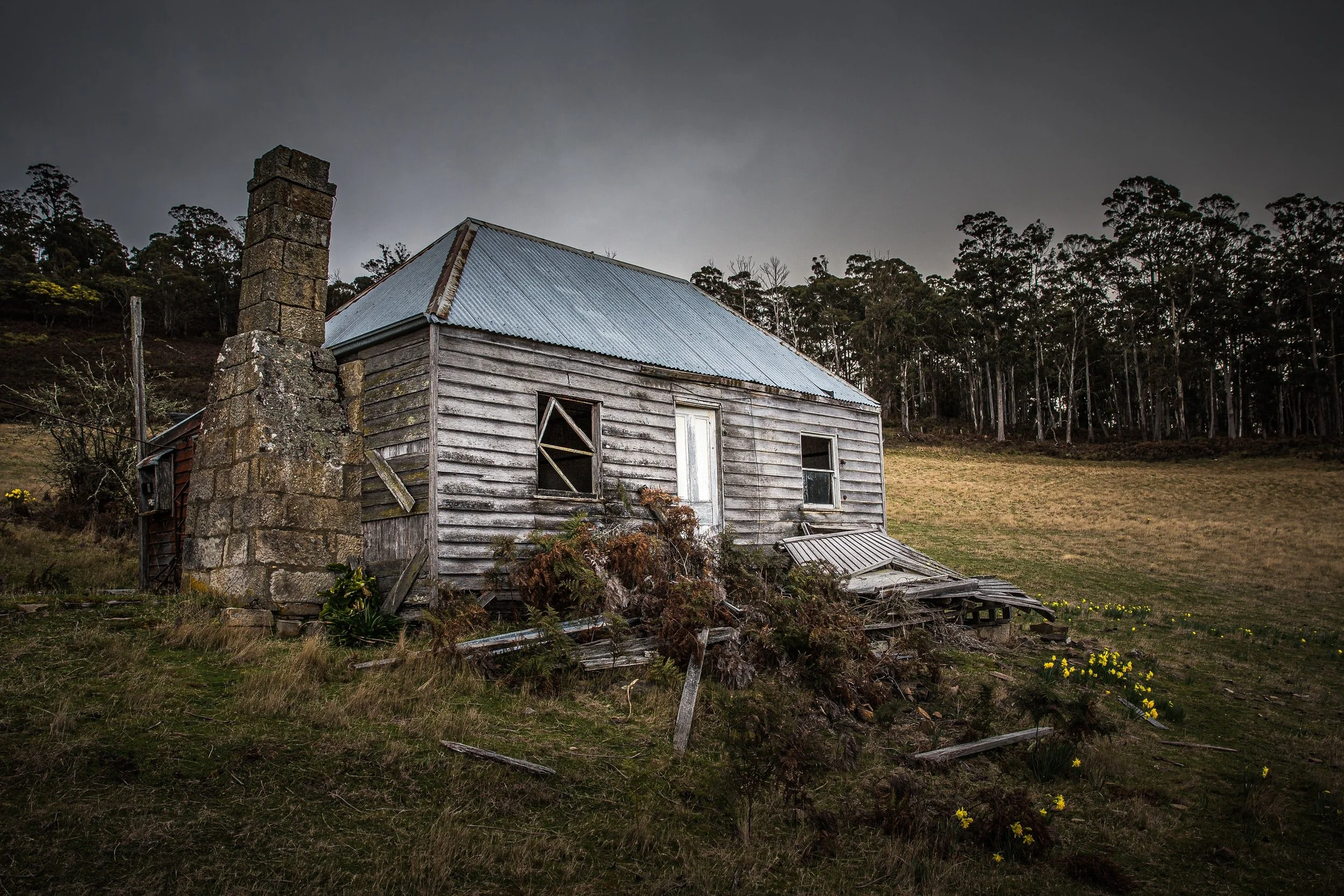Faith Like A Beach House
The excitement ebbed away with my first breath. Now, to be honest, I’m not an overly excitable guy; I’m fairly reserved in my displays of emotion, but I had been undeniably excited, that much was clear. But not any more.
A week or two earlier, my wife and I had purchased on old van, circa late 70’s, that had been permanently parked on a slab of concrete, wrapped in old corrugated iron, and had numerous little extensions tacked onto it over the last 30 years or so. Our intention was to make some small renovations, tidy it up, and use it as a beach house retreat for family holidays, and as a place for others in need of some Sabbath rest to have an inexpensive break away. The location is stunning. Nestled among the Australian bush landscape, overlooking a quiet stretch of water that winds its way out into the Pacific Ocean, sits our little shack. In my mind, the primary vision was wrapped in all the potential, the finished product, the place where I and others could rest. Of course, somewhere in the back of my consciousness was the annoying voice of the realist the dwells within, “You got a fair bit of work here, mate. It’s not going to be easy.”
I’d say that my sense of expectation was most akin to the hopes and dreams of my youth—full of visions for how thing will be, without giving much thought for the journey required to get there. I recall the zeal of my early 20’s, the vision I’d constructed of my victorious Christian life, the ministries I’d have transformed, and maybe even built. I remember thinking about how much easier my Christian life would be when I was older, when I’d conquered youthful lusts, had overcame the temptations that assailed me, and looked more like Jesus than I did then. I guess I must have thought that with enough time, things would get better, as though the passing of years would, in and of themselves, achieve something that I longed for.
But now, here I am looking at my Beach House—the passing of time had not been kind. Of course, there was a kind of rustic charm, a weathered patina that told a story of the years that etched themselves into it—yet there was no mistaking it, more time was not the cure for what ails my crumbling little shack. It was at this point, as I breathed in the musty air that carried with it the smell of rotting timber and carpet that had never truly dried, that the annoying voice of the realist suddenly grew louder, “See? I told you this was going to be a lot of work!”
My wife and I sat on the edge of an old step and looked around us as our younger children excitedly rummaged through the ruins and laid claim to rooms and spaces as though they were turn-of-the-century explorers. “That bit looks good, honey, we won’t have to do much in there,” came my wife’s optimistic voice. I nodded, but I was looking at everything else—my excitement was fast ebbing away. "I’ve been here before,” I thought.
And I had.
In my mid-forties, my faith is much like our Beach House—full of potential, full of promise, full of what could be—but left dormant for too long, left to the buffeting effects of wind and rain, waiting out the scorching summers and unattended winters, my faith begins to stink. I had foolishly thought that time would be the vehicle of sanctification, that being an older Christian would automatically make me a more Christ-like Christian. But it hasn’t. The veneer on my faith looked uncomfortably like the veneer on our shack—as I tore away the lining, ripped up the carpet, ferried trailer after trailer to the local tip, more and more structural damage was exposed. A light make-over has grown into a full-blown renovation.
Covered in filth and sweat, I sat down for a cool glass of water that my wife poured for me, and said between sips, “It might have been easier to just knock the whole thing down and build something new.”
“Maybe,” she replied. “But this will be better.”
I’d lost the vision for what this would be, all I could see was the labour involved—I was staring at the sunken foundation that needed reinforcing—but my wife was staring at the weekends we’d spend fishing with the kids, the families that would be blessed by the space we were creating; she was keeping her eyes open to the possibilities, even while her hands were dirty with the work required to achieve it. And in that moment, by an act of pure grace, Jesus stood beside my wife and knowingly nodded as she uttered those words.
Yes, there is much work needed during the hard years of sanctification—time alone is insufficient. But the work required, as back-breaking as it may be, isn’t the sole answer either. The effort required by my own hand will fall far short, just as the passing of years do—because what I actually need is the transformative work of grace. It is the gospel that must tear away the veneer, rip up the mouldy carpets, re-lay the foundation, and re-sheet the roof. Yes, it will take time. Yes, it will take hard work and no small amount of sweat and tears. But it will happen, because Jesus has not lost sight of what he’s doing in us, and he has not lost the resolve to achieve what he has begun.
I am sure of this, that he who started a good work in you will carry it on to completion until the day of Christ Jesus. (Philippians 1:6 CSB)
I made the 30 minute drive out to the shack just the other day, I stepped through the front door and took a deep breath; I could smell the fresh aroma of new timber, of a freshly laid floor, and paint that had recently dried. I know that just in the other room there is still a small leak from a roof that needs attention, and there is more painting to be done, more walls to finish lining, and some lights that need rewiring. It’s not done yet, but it will be soon.
I’m not done yet. But I soon will be.





